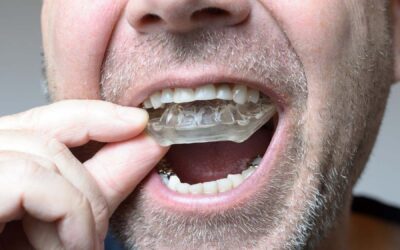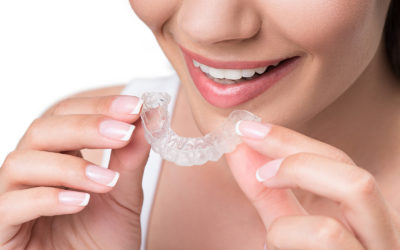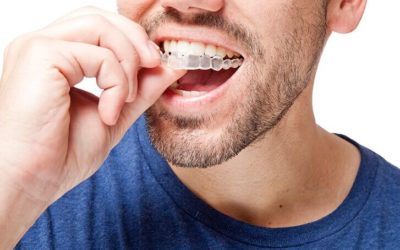You’ve probably heard of mouthguards, particularly when it comes to your favourite players. Athletes of all ages, from youngsters to professionals, wear mouthguards to protect their teeth from physical contact during a practice or game. Athletic mouthguards, however, are not the only types of mouthguards available. Other mouthguards can help prevent bruxism (teeth grinding), sleep apnea, and snoring. While the concept behind these mouthguards is the same, not every mouthguard is created equal; nonetheless, the dental experts at Soundview Family Our dental clinic in Edmonton can assist you in determining which mouthguard works best for you and meets your needs.
The silent struggles that happen while we sleep can have a lasting impact on our waking hours. Among these nocturnal battles is the age-old debate: Is sleeping with a night guard a good idea? Night guards, also known as dental or occlusal guards, have become a common recommendation to address a variety of oral health issues. In this blog post, we’ll explore the pros and cons, helping you decide whether embracing a night guard is the right choice for your slumber routine.
Benefits of a night guard
All mouthguards are intended to safeguard the user. What they protect or prevent depends on the type of protection and the condition being treated. A closer look at the numerous conditions that can be treated with a night guard in Edmonton will help you comprehend the distinction.
Pros of Sleeping with a Night Guard
1. Teeth Grinding and Clenching Protection
Night guards act as a protective barrier, cushioning your teeth and jaw from the effects of grinding or clenching during sleep. This can help prevent tooth damage, fractures, and jaw discomfort.
2. TMJ Pain Alleviation
For individuals experiencing temporomandibular joint (TMJ) pain, a night guard can help alleviate symptoms by providing a cushioning effect and reducing pressure on the jaw joint.
3. Prevention of Tooth Wear
Constant grinding or clenching can lead to the wear and tear of tooth surfaces. Night guards serve as a shield, minimizing the impact on your teeth and preserving their structural integrity.
4. Improved Sleep Quality
By addressing teeth grinding and associated discomfort, night guards may contribute to improved sleep quality, allowing you to wake up feeling more rested.
Cons of Sleeping with a Night Guard
1. Initial Discomfort and Adjustment
Wearing a night guard can feel uncomfortable initially, and some individuals may find it challenging to adjust to the new sensation. But over time, this discomfort usually goes away.
2. Maintenance and Cleaning
Nightguards require regular cleaning to prevent the buildup of bacteria. Failure to maintain proper hygiene may lead to oral health issues.
3. Cost Considerations
Custom-fitted night guards, often recommended for optimal comfort and effectiveness, can be relatively expensive. However, they are an investment in long-term oral health.
4. Not Suitable for Everyone
Night guards may not be suitable for everyone, and consulting with a dental clinic near you is crucial to determining if you are a good candidate. Alternative treatments might be suggested in certain circumstances.
Consult your dentist
The decision to sleep with a night guard is a personal one, influenced by various factors such as oral health issues, comfort preferences, and budget considerations. If you suspect teeth grinding, jaw clenching, or TMJ-related problems, consulting with a dentist is essential. Together, you can assess whether a night guard is a beneficial addition to your sleep routine or if alternative solutions may better address your specific needs. In the quest for a restful night’s sleep and optimal oral health, the night guard dilemma awaits your thoughtful consideration.
It is critical to get one custom-fitted to your bite for the best results. To learn more about how night guards can improve your life, call Impression Dental to book an appointment.




